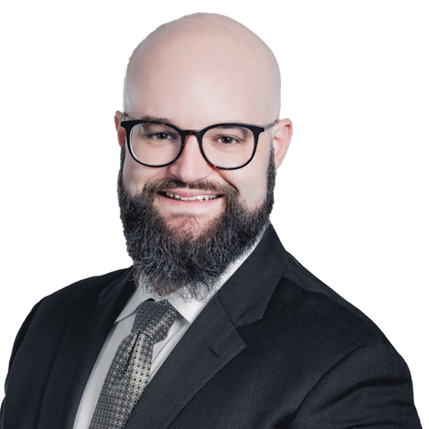RECORDING: Open-Source AI in the GenAI Era: Legal Risks, Compliance, and Commercial Use
When
October 16, 2025
12:00 - 1:30 PM ET
Where
Online
RECORDING NOW AVAILABLE.
Join leading legal and technology experts for a timely webinar exploring the rise of open-source generative AI. We’ll cover the latest model breakthroughs, compare open-source vs. proprietary strategies, and unpack the legal, IP, and compliance risks of using genAI in commercial products. The discussion will also address the growing use of genAI for software code generation, highlighting the accuracy, licensing, and clearance challenges organizations must manage to ensure secure and compliant deployment. Don’t miss this opportunity to learn how to innovate responsibly while navigating today’s complex regulatory and security landscapes.
Discussion Highlights
- Open-Source vs. Proprietary
- Transparency, cost, and innovation benefits weighed against legal, IP, and security risks.
- Legal & Regulatory Landscape
- Copyright and training data disputes (Bartz v. Anthropic and Kadrey v. Meta Platform)
- EU AI Act obligations and open-source exemptions
- U.S. national security and compliance concerns
- Risk & Security Issues
- Supply chain and backdoor threats
- Adversarial vulnerabilities and misuse (deepfakes, propaganda, cyberattacks)
- Due diligence, governance and licensing safeguards
- GenAI in Software Development
- Ownership / protectability of genAI outputs
- Risks of inaccurate or insecure AI-generated code
- Clearance and IP due diligence requirements
- Best practices for compliance in commercial products
Why Attend
- Learn about cutting-edge open-source genAI developments
- Understand the key legal and regulatory risks
- Gain practical compliance strategies for commercial deployment
Engage with panelists on the most pressing news and legal issues in AI.
SPEAKERS
 Steve Kurlowecz, Vice President, Chief IP Counsel at Kyndryl
Steve Kurlowecz, Vice President, Chief IP Counsel at Kyndryl
Steve Kurlowecz is the Chief IP Counsel for Kyndryl, Inc., the world’s largest IT infrastructure services provider. He oversees all aspects of intellectual property protection and IP risk management for the company. From 2003 until 2021, Steve served as Senior IP Counsel for IBM’s Cloud and Cognitive Solutions business units, responsible for intellectual property protection for their products and services business, including developing and implementing IP asset management strategies, software product clearance, adverse IP assertion investigations, source code licensing and M&A activities and providing guidance on software matters to IBM’s world-wide IP group.
Steve is a graduate of Suffolk University Law School and earned a Master's in Computer Science from Boston University as well as a Bachelor's in Computer Science from Framingham (MA) State College.
 Leslie Long, Senior Data & Security Counsel at Dassault Systèmes– Americas
Leslie Long, Senior Data & Security Counsel at Dassault Systèmes– Americas
Leslie Long is Senior Data & Security Counsel – Americas for Dassault Systèmes. He advises on transactional matters relating to cybersecurity requirements in commercial transactions, compliance, and open source matters. He has experience in due diligence of acquisitions, data rights, and assessment of machine learning/artificial intelligence technologies. Previously, Les worked as Intellectual Property counsel and in licensing and technology assessment at the Georgia Institute of Technology and University of Maryland College Park, specializing in software licensing matters. He has a J.D. from the University of New Hampshire School of Law and B.A. in Computer Science from Texas State University.
 Giovanna Fessenden-Fairbank, Digital IP Counsel at Hamilton Brook Smith Reynolds
Giovanna Fessenden-Fairbank, Digital IP Counsel at Hamilton Brook Smith Reynolds
Giovanna is a computer scientist, intellectual property attorney, and blockchain specialist with 20+ years of experience advising high-tech companies and startups in software patents, software product development, licensing, open source software, trademark branding, post-grant patent challenges, litigation, and intellectual property strategy. Giovanna’s legal practice focuses on all areas of intellectual property law with an emphasis on technologies related to artificial intelligence (AI), machine learning, blockchain, non-fungible tokens (NFTs), esports and gaming.
 Mary Lou Wakimura, Principal and Chair of the Board of Directors at Hamilton Brook Smith Reynolds
Mary Lou Wakimura, Principal and Chair of the Board of Directors at Hamilton Brook Smith Reynolds
For over 35 years, Mary Lou has assisted clients with patent preparation and prosecution, copyright registration, and portfolio management. She has particular experience with computer-related technologies and systems relating to imaging, video applications, mobile applications, machine learning, various platforms (cloud based, SaaS), virtual currency, solid modeling, simulations and mathematical models. Mary Lou’s expertise spans medical systems, bio/chemical analyses and processing, bioinformatics, medical diagnostics, and alternative energy. Additionally, her patenting expertise includes social networks, associated operations, and electro-mechanical matters, with and without a software component.

Philip Mazoki, Principal at Hamilton Brook Smith Reynolds
Philip practices in patent prosecution, IP strategy, and portfolio management in the areas of electrical engineering and software, including technologies such as simulation, 3D modeling, cybersecurity, machine learning, the Internet of Things (IoT), and electro-mechanical systems.
Phil has significant experience developing patent portfolios for a wide variety of computer-based modeling and simulation technologies. Example portfolios include technologies directed to structure, vehicle, manufacturing, and material simulation, ergonomic evaluation, and chemical and petroleum manufacturing simulation. Phil has also developed patent portfolios for cybersecurity technologies, including methods to evaluate vulnerability, methods to ensure safe operation regardless of attack modality, and methods to protect against specific threats.






